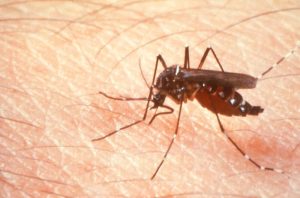In an update on the dengue fever outbreak on Palau, the Palau Ministry of Health reports an additional 15 cases the week ending June 16, which brings the outbreak total to 250 since December 2018.

There have been no reported deaths attributed to dengue infection during this outbreak.
On Friday, December 7, 2018, the Palau Ministry of Health alerted the public of an outbreak of dengue fever following the first ever laboratory confirmation of two cases with dengue serotype 3.
n response to the outbreak, the Ministry of Health activated its emergency response team on December 7, 2018. The team has been tasked with raising community awareness of the outbreak and dengue prevention measures, conducting disease surveillance and reporting, strengthening mosquito control measures, and ensuring adequate resources are available to combat the outbreak.
Dengue is transmitted by the bite of a mosquito infected with one of the four dengue virus serotypes. It is a febrile illness that affects infants, young children and adults with symptoms appearing 3-14 days after the infective bite.
Dengue is not transmitted directly from person-to-person and symptoms range from mild fever, to incapacitating high fever, with severe headache, pain behind the eyes, muscle and joint pain, and rash.
Severe dengue (also known as dengue hemorrhagic fever) is characterized by fever, abdominal pain, persistent vomiting, bleeding and breathing difficulty and is a potentially lethal complication, affecting mainly children.
In the past 50 years, the incidence of dengue worldwide has increased 30-fold, largely as a consequence of the growth of cities and increased travel.
- Kenya: Suspect Ebola case tests negative
- Naegleria fowleri: Fourth Annual PAM Summit 2019
- Eastern equine encephalitis in Florida horses: 18 cases to date
- Victoza receives FDA nod for treating pediatric patients with type 2 diabetes
- DR Congo measles outbreak increasing steadily
- Chickenpox in France: Twelve regional outbreaks reported
- Alzheimer’s disease: UNM researchers develop vaccine, Blood pressure drug holds promise


